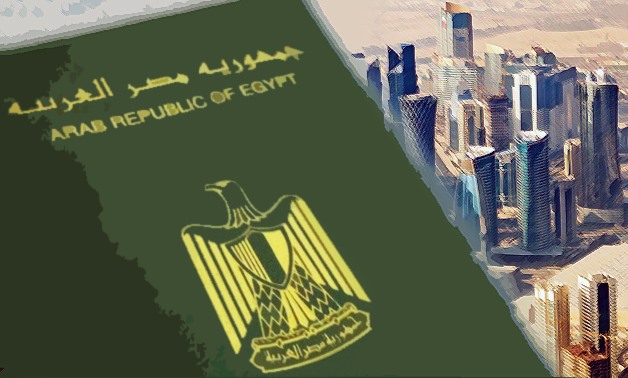
There are around 300,000 Egyptian nationals working in Qatar, according to the Ministry of Emigration and Egyptian Expatriates’ Affairs – Photo illustrated by Egypt Today/Mohamed Zain
### A Vital Workforce: Egyptians in Qatar
The Gulf nation of Qatar has become home to around 300,000 Egyptian nationals, who play a crucial role in various sectors, from construction to healthcare. This workforce is not just a statistic; it is a vital component of Qatar’s economy. The Ministry of Emigration and Egyptian Expatriates’ Affairs provides this figure, underscoring the significant ties between Egypt and Qatar.
### Labor Law Violations: The Warning from Egypt
In May 2018, the Egyptian Ministry of Manpower and Immigration issued a stern warning to its citizens working in Qatar. The emphasis was on compliance with Qatari labor laws, as violations could lead to deportation. The message was clear: Egyptian nationals must adhere to their original employers, official secondments when available, and the contracts binding them to their current employers. This advisory highlights the complex interplay between migrant workers and local legislation, where misunderstandings could lead to severe consequences.
### Diplomatic Strains: The Broader Context
The backdrop of this labor warning is steeped in geopolitical tension. In June 2017, Egypt, along with Saudi Arabia, the UAE, and Bahrain, severed diplomatic ties with Qatar, accusing it of supporting terrorism and maintaining close ties with Iran. These allegations were particularly focused on Qatar’s relationship with the Muslim Brotherhood, an organization that the Egyptian government has outlawed since President Abdel Fattah Al-Sisi came to power in 2013. This rift has implications for Egyptian expatriates, as it adds another layer of vulnerability to their situation abroad.
### Crackdown on Violators: Qatari Law Enforcement
In response to labor law violations, Qatari authorities, including the police and the Ministry of Administrative Development and Labour, implemented a wide-scale operation targeting violators. The aim was clear: to uphold the integrity of labor laws and ensure compliance among foreign workers. Reports indicated that, upon detection of a violation, individuals could be summoned before an immigration attorney. If found culpable, they faced the possibility of being deported, unless they could provide evidence of compliance with their original contracts.
### The Legal Process: Rights and Recourse
For those facing legal challenges, the process could pivot on their ability to provide evidence. Workers could potentially argue that their original employers were aware of any third-party arrangements, which would require supporting documents or testimonies. In such circumstances, the judiciary would have the discretion to impose a fine, capped at QAR 12,000, or less—a considerable sum for many workers.
Additionally, for those unable to pay the fines, avenues existed for recourse. Employees could submit complaints to the Human Rights Authority within the Qatari Interior Ministry, allowing them to explain their situation. However, the stakes were high; if the complaint was dismissed, deportation loomed as an inevitable consequence.
### The Human Element: Beyond Legalities
While laws and regulations govern the expatriate experience in Qatar, it’s essential to acknowledge the human side of this narrative. Many Egyptian workers venture to Qatar seeking better opportunities to support their families back home. The emotional and financial burdens carried by these individuals can often weigh heavily, leaving them vulnerable in an unfamiliar legal landscape. As they navigate these challenges, understanding local laws and adhering to them becomes paramount to their continued well-being abroad.
### Current Status: Ongoing Developments
As this situation continues to evolve, the dynamics between Qatar and its expatriate communities, especially Egyptians, remain in flux. The ongoing geopolitical tensions and labor law regulations have made the experiences of Egyptian nationals complex, intertwining economic aspirations with legal obligations. Whether seeking new opportunities or adhering to old agreements, these workers find themselves at the crossroads of national policies and personal ambitions, navigating a landscape that is always changing.




